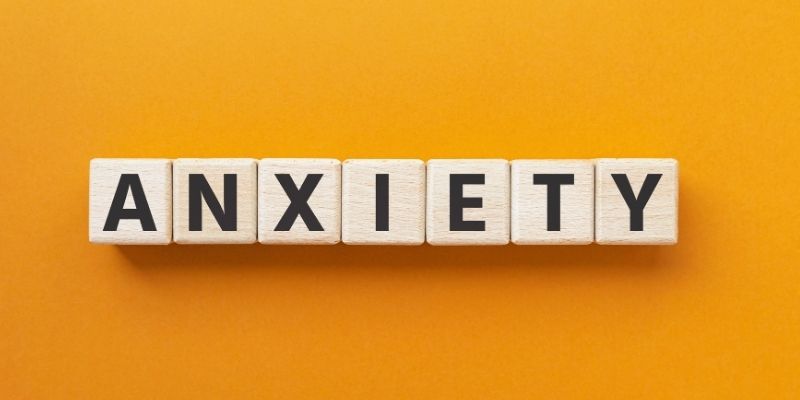Rest is more than just sleeping at night. It is about allowing your body and mind some respite. Many people fail to relax even if they are busy all day. Stress, weariness, and health issues can all follow from this. Rest promotes health, clarity of thinking, and improved mood. Your body needs time to heal and recharge. Enough sleep promotes energy, mood, and focus and improves immune system operation.
Rest is more than sleep; it also encompasses meditation, relaxation, and just plain not doing anything. Correct rest will help you to be happier and healthier. This guide will discuss the several kinds of rest and their significance. You will also learn how to add more downtime to your daily schedule. Let's examine closely how rest could positively transform your life.

What Is Rest and Why It Matters?
Rest is a respite from activity, tension, or effort. It let the body heal. Rest comes mostly in two forms: physical and psychological. For health, both are vital. Muscles heal from activity or work by physical rest. It covers leisure and sleep as well. Mental rest lets your brain reset. It covers breaks and peaceful hobbies. Rest is not laziness; it's part of a healthy lifestyle. Your body heals over time.
Lack of enough sleep could cause you to feel anxious, fatigued, and quickly agitated. You could find yourself unwell more frequently. Good rest enhances memory, attention, and decision-making. It advances both bodily and emotional equilibrium. Getting rest helps your heart, reduces stress, and maintains your mood stability. Rest even lets the body heal injured tissues and cells while you sleep. Rest is a need that influences your total well-being; it is not a luxury.
Types of Rest You Should Know
None of the rest is the same. Various forms of rest help different facets of you. Knowing every kind of rest will enable you to better care for your body and mind.
- Physical Rest: It covers sleep and quiet time when the body is not moving. There are two varieties: passive—like sleeping—and active—like mild yoga or stretching. Both enable your body to heal, lower tiredness, and provide energy for the next day.
- Mental Rest: It implies stopping during demanding activity or intellectual work. Mental relaxation involves peaceful times, deep breathing, or even nature strolling. It helps you relax, lowers brain fog, and sharpens attention.
- Sensory Rest: This rest lessens screen time, noise, and strong lights overloading your senses. Sitting silently or closing your eyes lets your senses reset. Sensory rest is helpful, especially because too much screen time strains your eyes and mind.
- Emotional Rest: Emotional rest is not pretending everything is good but being true to your emotions. It covers chatting to a buddy, keeping a notebook, or saying "no" when you feel depleted. It promotes your mental health and helps you prevent emotional burnout.
- Creative Rest: Creative rest helps recharge your mind and boost inspiration. It stimulates and revitalizes you. It covers time in the great outdoors, listening to music, or appreciating artwork. This relaxation is handy when you find yourself caught or lacking fresh ideas.
- Social Rest: Social rest is hanging out with folks who uplift you. It also involves stepping away from somebody that saps your vitality. Choose quality time with those who provide peace to you and support.
- Spiritual Rest: Your life gains direction and calm from this rest. It might incorporate time in nature, meditation, or prayer. It lets you relate to something more than yourself.

How Much Rest Do You Need?
Your age, way of life, and general health will all affect the rest you need. While toddlers and teenagers require even more for appropriate development, most adults need between 7 and 9 hours of sleep every night. Still, sleep by itself cannot completely rejuvenate your body and brain. If your mental or emotional condition is overburdened, you can still feel exhausted after sleep. That is why you should incorporate all kinds of rest into your daily schedule.
Every kind assists a distinct aspect of your welfare. The key is to pay attention to your body. Take a quick break—even for a few minutes—if you feel exhausted or agitated. These little breaks during the day help you to concentrate better and increase your vitality. Don't wait until you're completely exhausted to rest. Just like you eat meals or brush your teeth, make rest a regular component of your life. Long-term health depends on this.
Rest and Health: The Strong Connection
Maintaining your body and mind in health mostly depends on rest. It transcends mere relaxation quite a bit. Appropriate rest can lessen heart disease risk and blood pressure. It also keeps your brain sharp, enhancing memory, concentration, learning capacity, and ability to focus. Enough sleep strengthens your immune system, helping it fight infections and maintain good health. Rest helps balance hormones, which supports a healthy weight, stable mood, and overall wellness.
Emotional rest helps to lessen stress and thereby lowers the risk of major medical disorders, including anxiety and depression. When your body receives enough rest, your metabolism and digestion function better. These advantages illustrate the close relationship between rest and health. Give yourself a break without waiting till you get fatigued. Schedule rest regularly in your daily schedule. Getting enough rest is one of the easiest, most natural ways to stay healthy.
Conclusion:
A proper and balanced life depends on rest. It supports your mind, body, and emotions. Enough rest increases mood, concentration, and vigor. It lowers your chance of disease and strengthens your immune system as well. Rest encompasses breaks, quiet time, and emotional care—more than sleep. Relaxation should be a daily habit rather than something you do only when you are exhausted. Pay attention to the messages your body sends and react deliberately. Including all seven kinds of rest will enable you to stay healthy, feel better, and think clearly. Rest is a daily need; it is not a luxury.












